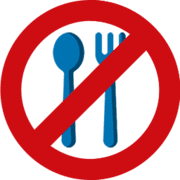Standard examination before gynaecological surgery*
* the list of examinations may be extended in the presence of a co-morbidity
* the list of examinations may be extended in the presence of a co-morbidity
(office hysteroscopy, removal of bartholin cysts, cervical conisation under intravenous anaesthesia)
Blood tests:
Examination of vaginal smears:
(surgical hysteroscopy, laparoscopy, vaginal surgery, laparotomy)
Blood tests:
Urine examination:
Examination of vaginal smears:
If ovarian cysts are present: blood cancer marker tests CA-125, НЕ-4, index-ROMA. The term after the test should not exceed 1 month. MRI of the pelvis with contrast (optional).
If malignancy of the ovary, fallopian tube or uterus (including cervix) is suspected or present, an additional CT scan of the chest, abdomen and pelvis is necessary.
During the coronavirus pandemic, PCR testing for covid-19 is mandatory. Having a vaccination certificate does not exempt you from being examined.Validity period 7 days from the date of analysis.
The above tests and examinations can be carried out at any medical centre that is convenient for you. If you have a co-morbid chronic illness, you will need to see a specialist.
Do not eat anything after 8 p.m. on the evening before the surgery.
do not restrict fluids until 7 a.m. on the day of the surgery

An enema is not necessary, provided you have had a normal bowel movement on your own the day before the surgery. Otherwise, a micro enema before bedtime.
If you are constipated, a bowel cleanser, Fortrans, must be taken (dilute a bag of Fortrans in 1 litre of drinking water 3 hours before going to bed the night before the surgery and drink it).

The hair in the area of the surgical field must be removed.

If you are constantly taking medication, take your medication on the day of surgery in the morning and drink a small sip of water.

All patients undergoing surgery must have medical compression stockings (compression class I or II) up to the upper third of the thigh, or elastic bandages (2 pieces of 5 metres each).

Admission to the hospital at 9:00 a.m. All metal objects such as piercings and jewellery must be removed from your body. At least one thumb on your hand must be varnish-free. Scheduled surgery is performed on the day of admission to hospital.
